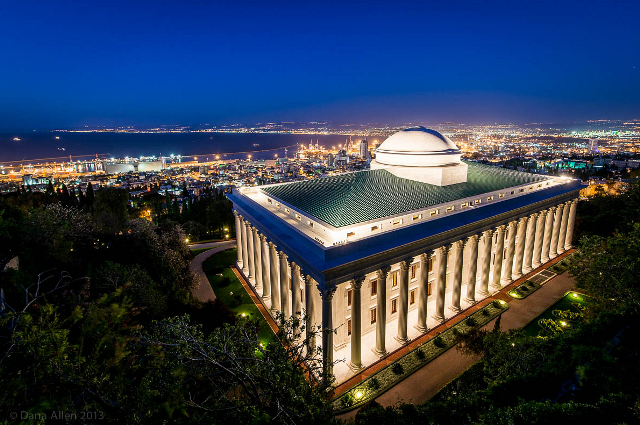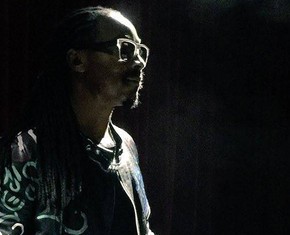The views expressed in our content reflect individual perspectives and do not represent the authoritative views of the Baha'i Faith.
Let’s talk about elections—no, not the mind-numbing chaos of the recent presidential election in the United States.
Instead, I’d like to talk about a very different kind of election our family took part in recently—the selection of a delegate whose mandate it will be to participate in the annual election of the National Spiritual Assembly of the Baha’is of the United States.
We received our ballots in the mail from the Baha’i National Center a month before the election took place. The voting materials consisted of two envelopes and a single blank piece of paper. One envelope has a place for the voter’s name and address (for mail-in absentee ballots); the other is featureless, except to note that it contains a delegate ballot. The ballot itself is blank, because there are no nominees for delegate—every ballot is a write-in ballot. The unmarked inner envelope ensures the confidentiality of a secret ballot.
We didn’t mail our ballots in, though, because our family attended the Baha’i unit convention in person, congregating with other Baha’is in our electoral area at our local Baha’i Center on a Sunday morning in October. We had breakfast together, then gathered in the main hall where we quickly elected a convention chairman and secretary. Then we voted for the one delegate we would send to the National Convention in Wilmette, Illinois in April.
The mechanics of a Baha’i unit convention seem simple: We pray, there is music, then we are reminded about what to look for in those we choose to serve in this capacity: people who combine such qualities as unquestioned loyalty, selfless devotion, a well-trained mind, recognized ability and mature experience.
We all aspire to these qualities as members of the electorate. Ideally, though, we have become acquainted with both the principles of our Faith and the people we elect, so that we have a sense of the spiritual qualities they possess. Then, we silently and prayerfully cast our votes with thoughtful consideration of those qualities, but without passion, prejudice, or regard for material concerns.
Baha’i communities all over the world use the same criteria when they elect their Local Spiritual Assemblies; the democratically-elected, nine-member bodies that administer the affairs of local Baha’i communities. Instead of one blank space on a ballot sheet, each Baha’i votes directly for the nine people who will serve on their Assembly. When our delegate casts a ballot for the nine members of the National Spiritual Assembly, the same process occurs: nine blank spaces, which each delegate fills in with the names of those they believe have the qualities I mentioned above.

Seat of Universal House of Justice
How do Baha’is nominate those they vote for? They don’t. Every adult Baha’i in the electoral unit, from the local to the international level, is eligible to serve. No nominations means no campaigning, no electioneering, and no discussion of personalities. There are no political factions or parties, no debates, and no warring constituencies. Baha’is elect every administrative body this way—including the Universal House of Justice, the guiding body for the global Baha’i community.
This works. It’s been working since 1899, when the first elected Baha’i institutions came into being in Tehran, Iran and Chicago, Illinois. It builds unity, avoids the pitfalls of traditional politics and results in principled leadership.
Naturally, this sort of process requires that the electorate be well-informed about a number of things, including the qualities necessary for serving selflessly on a collaborative and consultative body, and the character of the people they vote for. This intentional design gives Baha’is yet one more reason to get to know each other as members of an extended family.
But here’s the thing: while Baha’is endeavor to acquaint ourselves with the qualities and character of our fellow Baha’is, we don’t discuss them, except in the abstract. As I’m weighing my choices, I might have a dialogue with a family member about whether humility or self-confidence is more important in consultation. But for me to say to another Baha’i, ”I like Ike, but he’s not humble enough to serve on an Assembly” or ”Gerta is great, but she’s not very assertive in consultation,” is a non-starter. This system, in which every adult Baha’i is electable and the ballot secret, makes avoidance of that sort of negative discussion easy for most of us.
Why does the Baha’i system work this way? Because Baha’u’llah, himself, dictated that his Faith would have no clergy, and designed democratically-elected institutions to carry out the tasks necessary to the functioning of the community, to protect the Faith, and to serve the believers. He wrote:
The Lord hath ordained that in every city a House of Justice be established wherein shall gather counsellors to the number of [nine]… They should consider themselves as entering the Court of the presence of God, the Exalted, the Most High, and as beholding Him Who is the Unseen. It behoveth them to be the trusted ones of the Merciful among men and to regard themselves as the guardians appointed of God for all that dwell on earth. It is incumbent upon them to take counsel together and to have regard for the interests of the servants of God, for His sake, even as they regard their own interests, and to choose that which is meet and seemly. – The Most Holy Book, p. 30.
I’ve saved the best for last—at least, this aspect of Baha’i institutions excites me the most. Individuals who serve on Baha’i assemblies, whether at the local, national or international level, have no personal power or authority beyond what any other Baha’i has. The institution has the authority to handle the ordinary and extraordinary business of the community—from the establishment of children’s classes to the procurement of a Baha’i center to protecting members of the community from harm (which is more difficult in some countries than others)—but the individual members have no authority. Neither the institution nor its individual members represent a party or a constituency within the Baha’i community.
So, as our electoral unit elected our delegate to the national convention, and consulted together about what we would like the assembled delegates and the incoming National Assembly to consider, we were all intensely aware of the utter chaos, mudslinging and hostility taking place around governmental elections in our nation and in other countries around the world.
I, for one, was glad to be part of a community in which the right and obligation to cast a ballot was a joyful and unifying one.
You May Also Like
Comments

















Unlike elections in our and probably every other civil society in the world, this also requires that we be engaged with individuals in the community. No longer can we afford to hide our heads in the sand, avoiding contact with other humans, in hopes of remaining invisible and unchallenged. Our Bahá'í life is one of engagement, society, community, and fellowship. These characteristics ...are lacking in most other places.